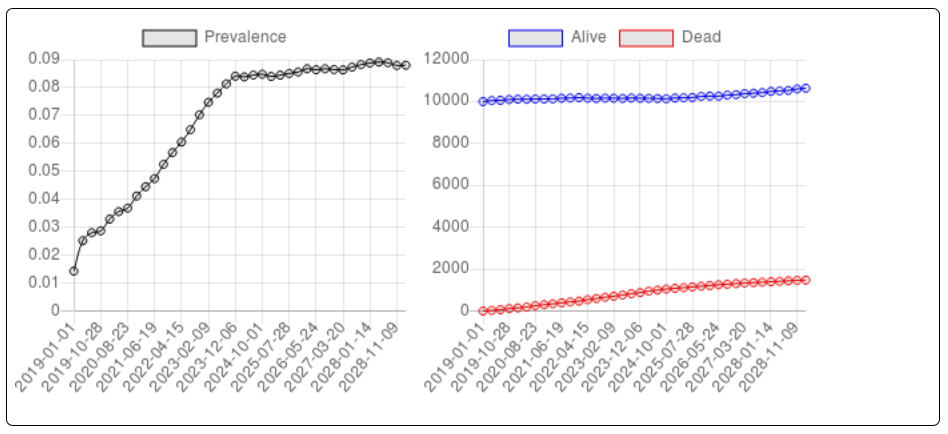Introduction¶
FastSTI is a framework for implementing agent-based models of sexually transmitted infection epidemics.
It is designed to handle up to tens of millions of agents on a mid-range laptop, or to run many smaller simulations consisting of thousands of agents quickly in parallel. On a high performance computer it can run dozens of large simulations or hundreds of small ones in parallel.
The output of the simulations is written to CSV files, which can be further processed in scripting languages like Python or R.
You can do sophisticated simulations without making any modifications to the code. But if you do wish to extend the framework, it is written in C. The framework has been designed with extensibility in mind.
FastSTI is developed and tested on GNU/Linux using the gcc compiler (and often the Clang compiler too). It uses two portable 3rd-party libraries: the GNU Scientific Library and GLib. The code adheres to the C11 standard and should compile on any standards-compliant modern C compiler.
FastSTI is free software (GPL licensed). If you are a C programmer, you can clone the source code on Github and modify it.
There’s a web interface to a toy version of FastSTI on Simhub that you can play around with to get a feel for how it works. Here’s a screenshot from Simhub:

Warning
FastSTI is in active development. It is usable (we think) but this documentation is changing almost daily. At this point no backwards compatibility is being implemented, and no warnings of incompatible changes are being documented. FastSTI is not yet at an alpha release stage. When it is more stable, we will remove this warning.